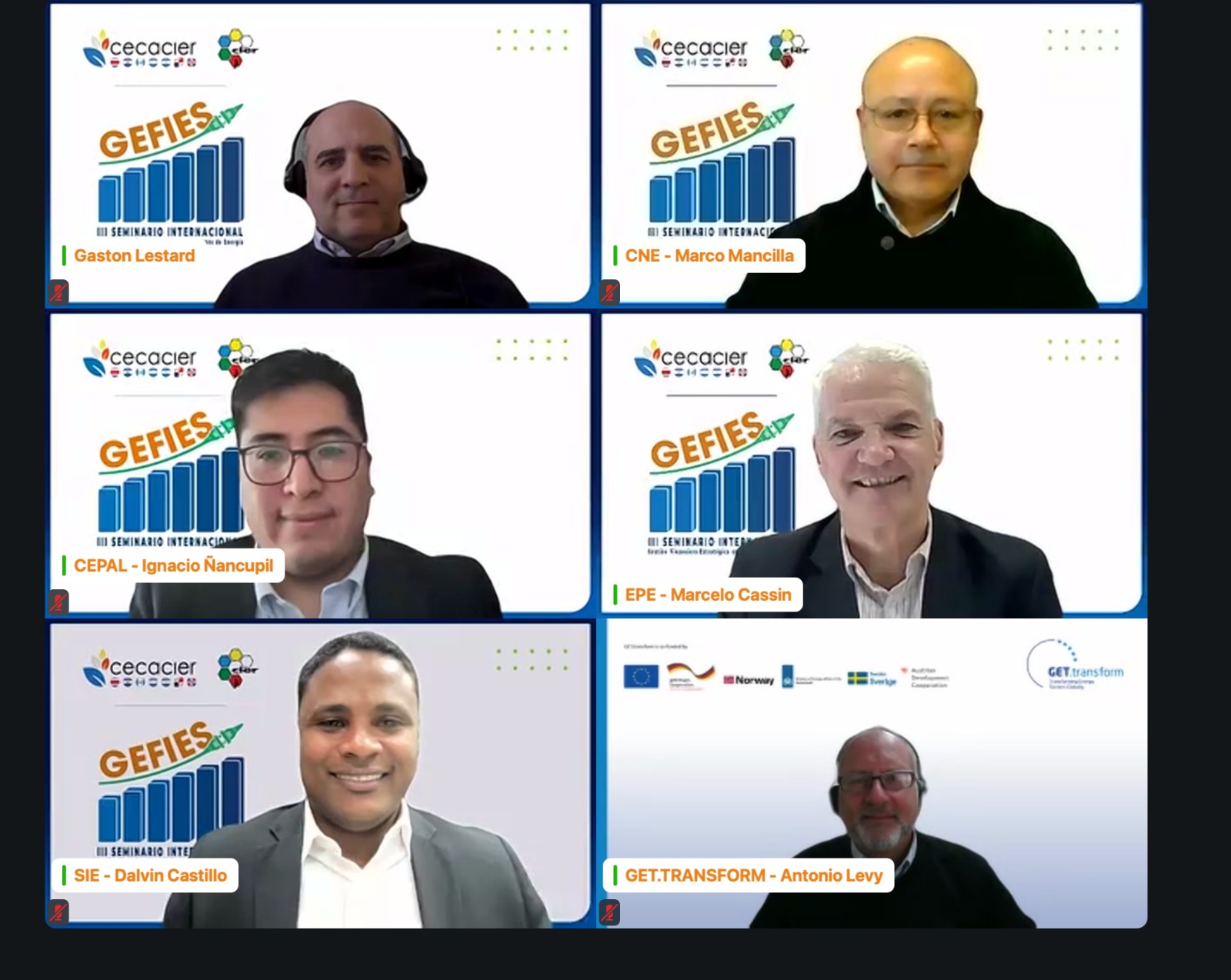ECLAC Highlights the Importance of Modern and Participatory Regulatory Frameworks at the III International Seminar on Strategic Financial Management in Energy Companies
Work area(s)
Topic(s)
The Economic Commission for Latin America and the Caribbean (ECLAC) participated in the III International Seminar on Strategic Financial Management in Energy Companies (GEFIES ), held virtually on May 28 and 29. The event was organized by the CIER Committee for Central America and the Caribbean (CECACIER) and the Regional Energy Integration Commission (CIER).

This seminar brought together representatives from governments, energy companies, development banks, multilateral organizations, and international experts to discuss financing strategies and regulatory innovations that can drive the energy transition in Latin America and the Caribbean.
During Panel 2: Regulation as an Accelerator of the Sustainable Energy Transition, ECLAC shared its perspective on the regulatory challenges and opportunities facing the region in its pursuit of a sustainable energy transition. According to ECLAC’s prospective electricity scenarios, annual investments exceeding 1.8% of the regional GDP in South America and over 1.7% in Central America and Mexico would be required to achieve near-zero net emissions by 2050.
ECLAC also emphasized that regulation must evolve beyond traditional cost-based frameworks by incorporating market signals that reward flexibility, fostering the creation of energy services markets, and strengthening energy planning through participatory approaches.
ECLAC’s participation reaffirms its commitment to a sustainable energy transition, with its work structured around four public policy pillars: strengthening governance ecosystems, institutions, regulatory frameworks, and public-private cooperation; increasing investment in energy infrastructure, innovation, and new technologies; aligning energy policy with productive development strategies to boost value chains linked to the transition industries; and reinforcing long-term energy planning.